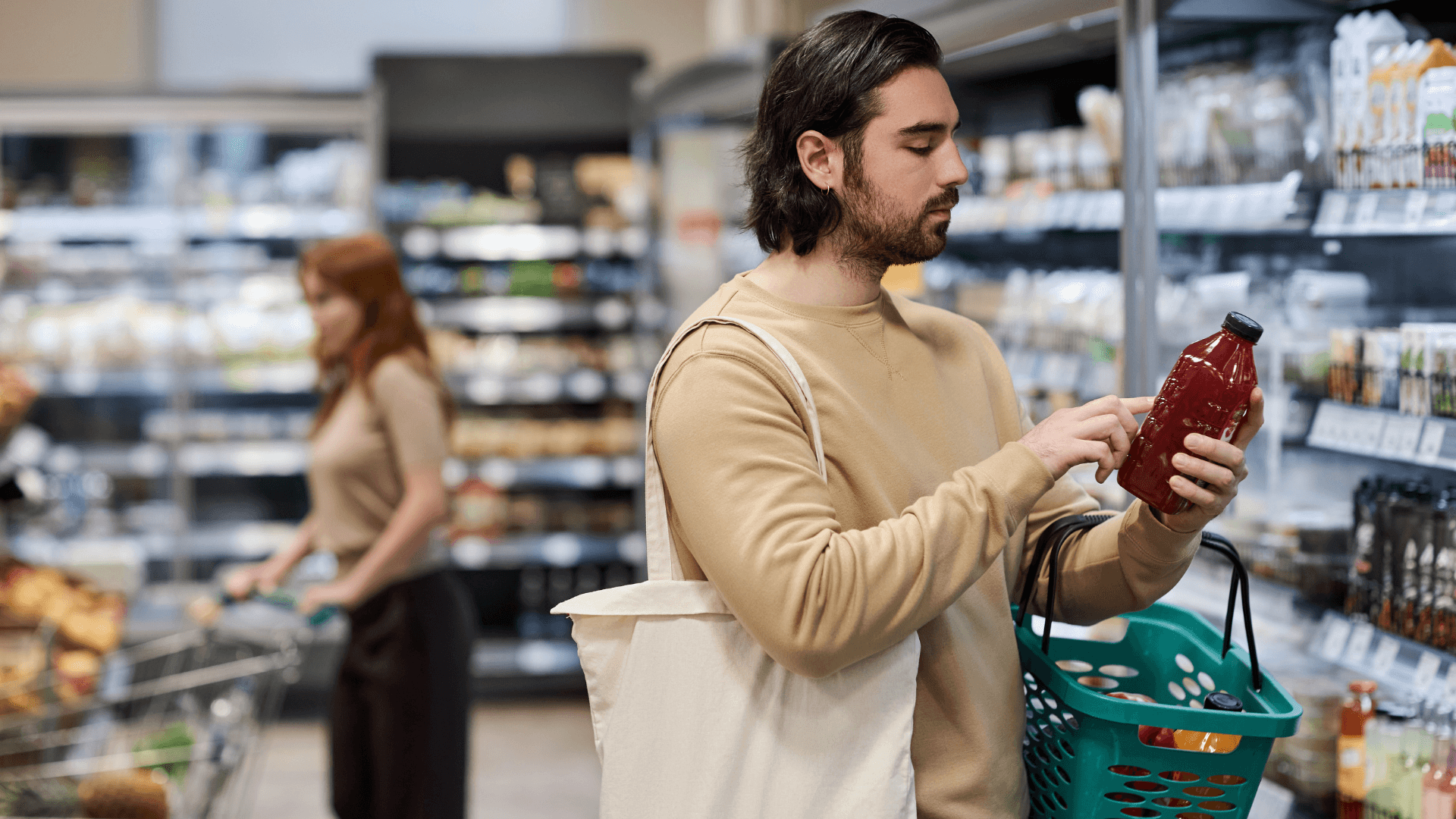Unpacking Ultra-Processed Foods: Are They Our Dietary Foe?

Clemence Cleave
Nutritionist
- 28 August, 2024
- Diet & Nutrition
- 3 min read
Unpacking Ultra-Processed Foods: Are They Our Dietary Foe?
We all know that nutrition plays a key role in our overall health and wellbeing.
When it comes to ultra-processed foods, you may have come across some rather sensational headlines, or maybe you’ve heard influencers passionately advocating for a complete ban on ultra-processed foods.
But what exactly are ultra-processed foods? When you walk through the supermarket aisles, how do you know which foods are ultra-processed? And should we be cutting them out of our diet completely? It can be a confusing topic. If you’re feeling confused, you’re not alone.
Read on to find out everything you need to know about ultra-processed foods.
Understanding Ultra-Processed Foods

Now, what exactly constitutes an ultra-processed food? These are foods that undergo an array of industrial processes and typically boast more than five ingredients, including components like fat, sugar, salt, preservatives, emulsifiers, sweeteners, and artificial flavours [2]. They tend to include ingredients that you don’t recognise the names of and wouldn’t typically use when cooking meals from scratch at home.
It’s a broad category, encompassing everything from bacon-flavoured crisps and frankfurters, to pantry staples like wholemeal bread and plant-based milks.
Navigating the World of UPFs
UPFs have been making waves, and there’s mounting evidence suggesting a connection to health concerns. In the UK, UPFs make up a significant 60% of our dietary intake [1], prompting us to reconsider our eating habits. However, it’s essential to remember that not all food processing is detrimental. Some processes, such as pasteurisation, fortification, and fermentation, can genuinely enhance the nutritional quality of our foods.
Take milk for example, it needs to undergo the pasteurisation process to remove any potentially harmful bacteria and make it safe for us to consume.
Untangling Health Concerns
A high consumption of ultra-processed foods has been linked to health issues like obesity, type 2 diabetes, cardiovascular diseases, specific cancers, and even overall mortality rates [3,4,5].
But here’s the catch – correlation doesn’t necessarily imply causation. And for the moment we are not clear on what might be the mechanisms at play: is it because the food structure gets broken? Does it change our appetite regulation? Is it the presence of some specific additives such as emulsifiers, artificial flavouring, thickening agents? There are a lot of theories floating around but few answers yet.
One thing’s for sure: not all ultra-processed foods are created equal in terms of health impact. While some, like sugary snacks and processed meats, come packed with calories, fat, salt, and sugar, others offer valuable nutrients. Think whole-grain cereals and fortified plant-based milks – they fall under the ‘UPF’ category but bring essential nutrients to the table, often lacking in our western diet, including fibre, B vitamins, vitamin D, and iron.
Striking a Dietary Balance
The key takeaway is that while it’s prudent to limit your consumption of ultra-processed foods, you don’t necessarily have to bid farewell to them entirely. It’s all about finding balance. A good rule of thumb is the 80:20 approach – aim to consume non-UPFs for most of your meals while keeping an allowance for occasional UPFs, especially when life gets hectic.
There’s no need to demonise all ultra-processed foods, although attention to the details is a good idea. By making informed choices, understanding ingredient labels, and considering our overall diet, UPFs can coexist with whole, nutritious foods, enabling us to enjoy a diverse and satisfying diet without unnecessary stress.

References
[1] Rauber, F. et al. (2018) Ultra-Processed Food Consumption and Chronic Non-Communicable Diseases-Related Dietary Nutrient Profile in the UK (2008–2014), Nutrients, 10(5), pp. 587. doi:10.3390/nu10050587.
[2] Monteiro, C.A. et al. (2017) The UN Decade of Nutrition, the NOVA food classification, and the trouble with ultra-processing, Public Health Nutrition, 21(1), pp. 5-17. doi:10.1017/S1368980017000234.
[3] Pagliai, G. et al. (2021) Consumption of ultra-processed foods and health status: a systematic review and meta-analysis, British Journal of Nutrition, 125(3), pp. 308-318. doi:0.1017/S0007114520002688.
[4] Delpino, F.M. et al. (2021) Ultra-processed food and risk of type 2 diabetes: A systematic review and meta-analysis of longitudinal studies, International Journal of Epidemiology, 51(4), pp. 1120–1141. doi:10.1093/ije/dyab247.
[5] Hall, K.D. et al. (2019) Ultra-Processed Diets Cause Excess Calorie Intake and Weight Gain: An Inpatient Randomized Controlled Trial of Ad Libitum Food Intake, Cell Metabolism, 30(1), pp. 67-77.e3. doi:10.1016/j.cmet.2019.05.008.

Advice
Over the last 20+ years our experts have helped more than 100,000 patients, but we don’t stop there. We also like to share our knowledge and insight to help people lead healthier lives, and here you will find our extensive library of advice on a variety of topics to help you do the same.
OUR ADVICE HUBS See all Advice Hubs

